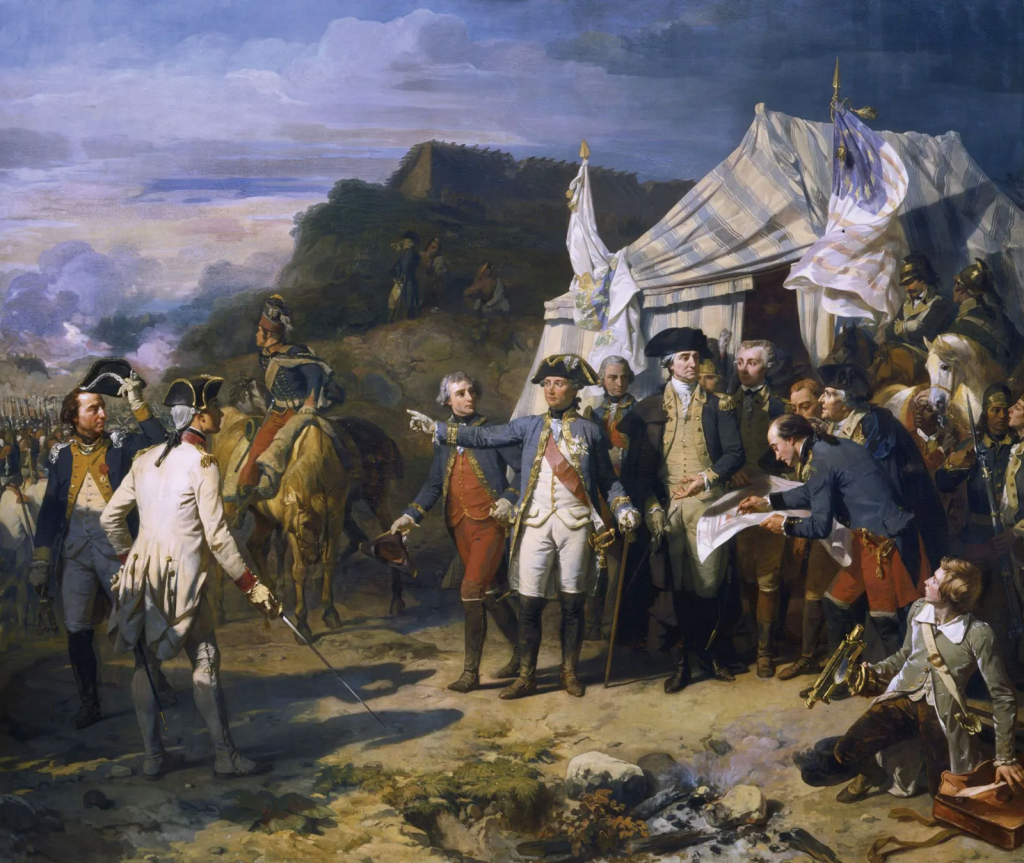The year 1778 marked a significant shift in the American Revolutionary War. With France officially joining the war effort, Britain suddenly found itself stretched thin, forced to defend not only North America but also its Caribbean and global colonies. This led to a change in British leadership, as General William Howe resigned and returned to England, replaced by the more calculating General Henry Clinton. However, amid these strategic shifts, one of the most thrilling and often-overlooked moments of the war unfolded—the daring escape of the young French Marquis de Lafayette at the Battle of Barren Hill.


A Young Hero on the Battlefield
At just 20 years old, Lafayette had already become a prominent figure in the American cause. He had gained the trust of General George Washington, who saw him not only as an officer but as a surrogate son. Despite his aristocratic background, Lafayette was eager to prove himself in combat, and Washington gave him his first independent command in May 1778.
On the night of May 18, as British officers in Philadelphia threw a grand farewell party for General Howe, Lafayette led a small reconnaissance force of 2,200 troops toward Barren Hill, just outside the city. Washington had one crucial piece of advice for his young commander: never camp in a position where retreat was impossible. Lafayette, filled with youthful enthusiasm, forgot this advice almost immediately and set up camp in a dangerously exposed position, with only a small wooded area providing cover.
The British Strike
News of Lafayette’s presence spread quickly, and the British saw an opportunity. General Howe, eager for one last victory, dispatched a massive force—11,000 soldiers—to surround and capture Lafayette. British commanders underestimated him, assuming he was just a young noble playing at war. They encircled Barren Hill from three sides, leaving only the wooded area unguarded—because, in their minds, no honorable officer would flee through the trees.
Outfoxing the British
Lafayette had no intention of being captured. Realizing he was outnumbered, he quickly devised a plan. Instead of surrendering, he ordered his troops to quietly retreat through the forest. To confuse the British, he left small detachments behind to fire sporadically, creating the illusion of a much larger force still engaged in battle. The British, thinking they had cornered Lafayette, fired blindly into the woods, only to realize too late that they were shooting at shadows.
By the time the British advanced into the forest, Lafayette and his men had already slipped away, completely unscathed. His brilliant escape turned what could have been a disaster into a symbolic victory, proving his worth as a tactician and a leader. No longer just a French nobleman with good intentions, Lafayette had become a warrior.
The Legacy of Barren Hill
Though the Battle of Barren Hill did not drastically alter the course of the war, it cemented Lafayette’s reputation as a formidable military leader. His survival and success bolstered American morale, while his escape embarrassed the British, who had vastly outnumbered him. Today, Barren Hill is known as Lafayette Hill, a testament to the young general’s daring maneuver.
Lafayette’s story is a reminder that war is not always won by brute strength but by intelligence, adaptability, and courage. His bond with Washington grew stronger after this battle, and his contributions to the American Revolution helped secure the French support that ultimately led to victory.
Even today, his legacy endures—not just in history books, but in the values of freedom and perseverance that the United States still upholds. Perhaps the most fitting tribute to Lafayette’s ingenuity and bravery is that he, a foreigner, became one of the most beloved figures in American history, proving that the fight for liberty knows no borders.

No comments yet.